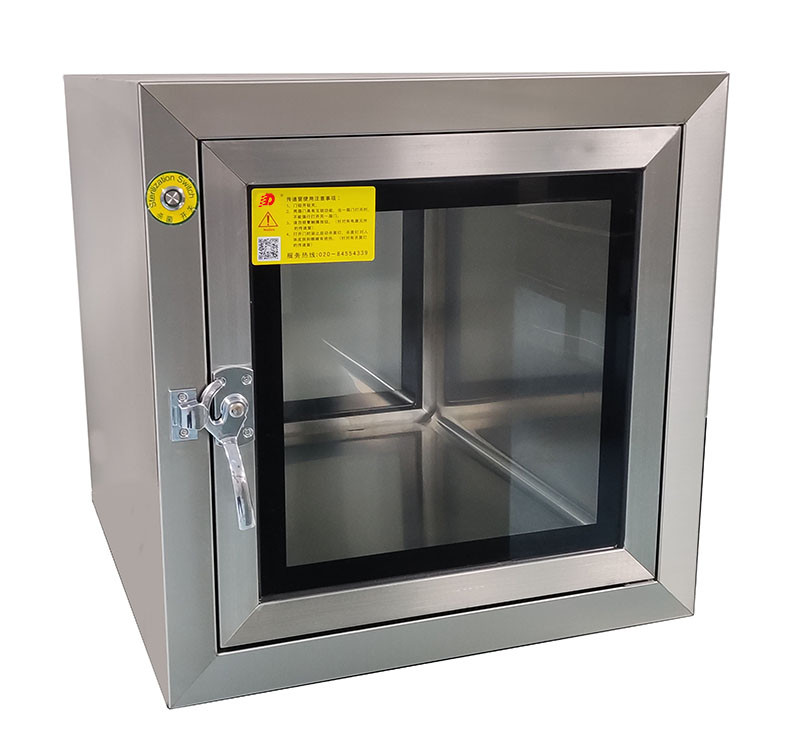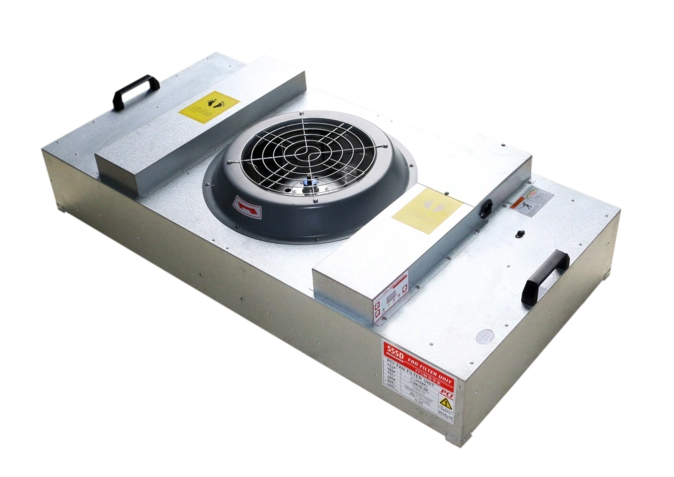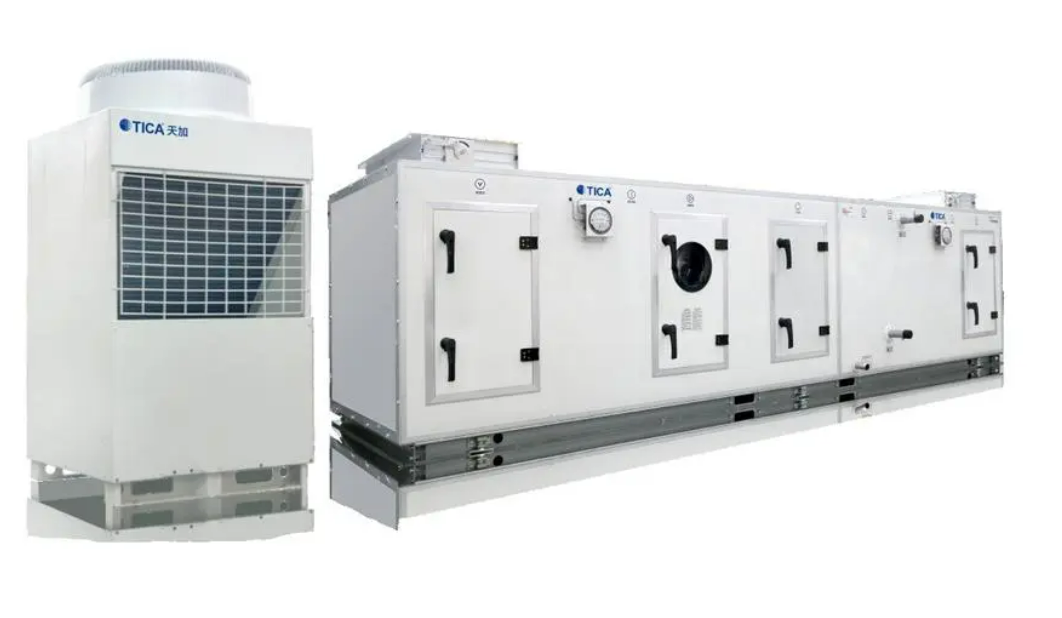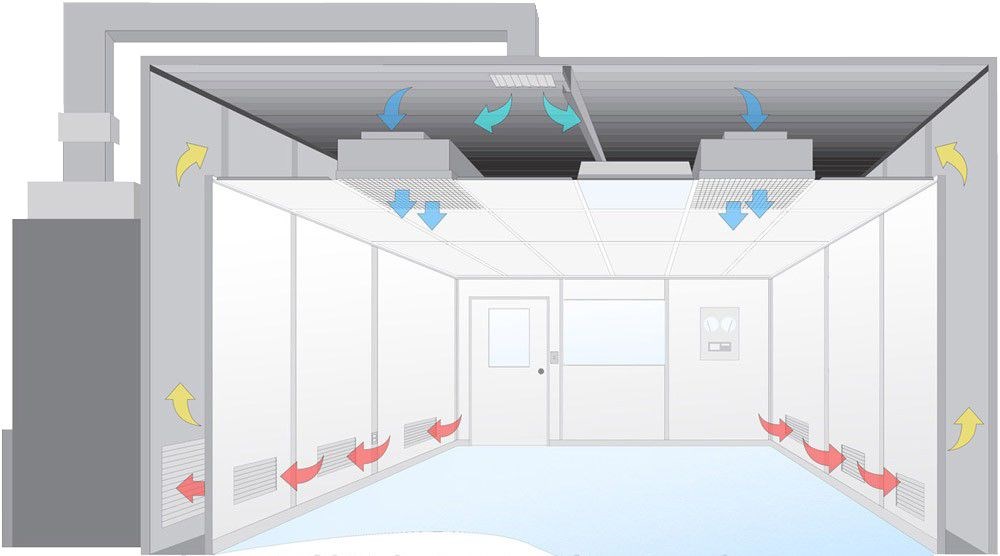Section 1 General Provisions

Article 33 Food production and operation shall comply with food safety standards and meet the following requirements:
Have food raw material processing and food processing, packaging, storage and other places that are suitable for the variety and quantity of food produced and operated, keep the environment of the place clean and tidy, and keep the prescribed distance from toxic and harmful places and other pollution sources;
Have production and operation equipment or facilities that are suitable for the variety and quantity of food produced and operated, and have corresponding disinfection, changing clothes, washing, lighting, ventilation, anti-corrosion, dust prevention, fly prevention, rat prevention, insect prevention, washing and wastewater treatment, garbage and waste storage equipment or facilities:
Have full-time or part-time food safety professionals, food safety management personnel and rules and regulations to ensure food safety:
Have a reasonable equipment layout and process flow to prevent cross-contamination between processed food and directly ingested food, raw materials and finished products, and avoid food contact with toxic and unclean substances;
Tableware, drinking utensils and Containers for food to be eaten directly shall be washed and disinfected before use, and cooking utensils and appliances shall be washed and kept clean after use;
Containers, tools and equipment for storing, transporting and loading and unloading food shall be safe, harmless, kept clean, prevent food contamination, and meet the special requirements such as temperature and humidity required to ensure food safety. Food shall not be stored or transported together with toxic or harmful substances:
Food to be eaten directly shall use non-toxic and clean packaging materials, tableware, drinking utensils and containers:
Food production and operation personnel shall maintain personal hygiene. When producing and operating food, they shall wash their hands and wear clean work clothes, etc.; when selling unpackaged food to be eaten directly, non-toxic and clean containers, sales tools and equipment shall be used:
Water used shall meet the national standards for drinking water hygiene;
Detergents and disinfectants used shall be safe and harmless to the human body:
Other requirements stipulated by laws and regulations.
Non-food producers and operators engaged in food storage, transportation and loading and unloading shall comply with the provisions of the sixth item of the preceding paragraph.
Article 34 The following foods, food additives, and food-related products are prohibited from being produced and sold:
Foods produced with non-food raw materials or foods that contain chemical substances other than food additives and other substances that may endanger human health, or foods produced with recycled food as raw materials;
Foods, food additives, and food-related products that contain pathogenic microorganisms, pesticide residues, drug residues, biological toxins, heavy metals, and other pollutants that are harmful to human health and other substances that exceed the food safety standard limit;
Foods and food additives produced with food raw materials and food additives that have exceeded their shelf life;
Foods that use food additives beyond the scope and limit;
Main and auxiliary foods for infants and other specific groups whose nutritional ingredients do not meet food safety standards;
Spoiled, oily, and greasy foods Food and food additives that are rancid, poisonous, verminous, dirty, mixed with foreign matter, adulterated or have abnormal sensory properties
Meat and its products of animals, livestock, beasts and aquatic animals that died of disease, poison or unknown causes;
Meat that has not been quarantined or failed the quarantine, or meat products that have not been inspected or failed the inspection;
Food and food additives contaminated by packaging materials, containers, transportation vehicles, etc.;
Food and food additives with false production dates, shelf life or expired shelf life:
Unlabeled pre-packaged food and food additives;
Food that the state expressly prohibits from production and operation for special needs such as disease prevention;
Other foods, food additives and food-related products that do not comply with laws, regulations or food safety standards.
Article 35 The state implements a licensing system for food production and operation. Those engaged in food production, food sales and catering services shall obtain a license in accordance with the law. However, no license is required for the sale of edible agricultural products.
The food and drug supervision and administration departments of local people's governments at or above the county level shall, in accordance with the provisions of the Administrative Licensing Law of the People's Republic of China, review the relevant materials submitted by the applicant as required by the first to fourth items of the first paragraph of Article 33 of this Law, and conduct on-site inspections of the applicant's production and operation sites when necessary; if the conditions are met, the license shall be granted; if the conditions are not met, the license shall not be granted and the reasons shall be stated in writing.
Article 36 Small food production and processing workshops and food vendors engaged in food production and operation activities shall comply with the food safety requirements prescribed in this Law that are commensurate with their production and operation scale and conditions, and ensure that the food they produce and operate is hygienic, non-toxic and harmless. Food and drug supervision and administration departments shall strengthen supervision and administration over them. Local people's governments at or above the county level shall conduct comprehensive management of small food production and processing workshops and food vendors, strengthen services and unified planning, improve their production and operation environment, encourage and support them to improve their production and operation conditions, enter fixed places such as centralized trading markets and shops for operation, or operate in designated temporary operation areas and time periods. The specific management measures for small food production and processing workshops and food vendors shall be formulated by provinces, autonomous regions, and municipalities directly under the Central Government.
Article 37 When using new food raw materials to produce food, or producing new varieties of food additives or new varieties of food-related products, the safety assessment materials of the relevant products shall be submitted to the health administrative department of the State Council. The health administrative department of the State Council shall organize an examination within 60 days from the date of receipt of the application; if it meets the food safety requirements, it shall be approved and announced; if it does not meet the food safety requirements, it shall not be approved and the reasons shall be stated in writing.
Article 38 Drugs shall not be added to the food produced and sold, but substances that are traditionally both food and Chinese medicinal materials may be added. The list of substances that are traditionally both food and Chinese medicinal materials shall be formulated and announced by the health administrative department of the State Council in conjunction with the food and drug supervision and administration department of the State Council.
Article 39 The state implements a licensing system for the production of food additives. Those engaged in the production of food additives shall have sites, production equipment or facilities, professional and technical personnel and management systems that are suitable for the types of food additives produced, and obtain a food additive production license in accordance with the procedures prescribed in the second paragraph of Article 35 of this Law. The production of food additives shall comply with laws, regulations and national food safety standards.
Article 40 Food additives shall be included in the scope of permitted use only if they are technically necessary and have been proven safe and reliable through risk assessment; relevant national food safety standards shall be revised in a timely manner based on technical necessity and food safety risk assessment results.
Food producers and operators shall use food additives in accordance with national food safety standards.
Article 41 The production of food-related products shall comply with laws, regulations and national food safety standards. For food-related products with high risks such as packaging materials that directly contact food, production licenses shall be implemented in accordance with the relevant provisions of the state on the management of industrial product production licenses. Quality supervision departments shall strengthen supervision and management of food-related product production activities.
Article 42 The state shall establish a full-process traceability system for food sales. Food producers and operators shall establish a food safety traceability system in accordance with the provisions of this Law to ensure that food is traceable. The state encourages food producers and operators to use information technology to collect and retain production and operation information and establish a food safety traceability system.
The State Council’s food and drug supervision and administration department shall, together with the State Council’s agricultural administration and other relevant departments, establish a full-process traceability cooperation mechanism for food safety.
Article 43 Local people’s governments at all levels shall take measures to encourage large-scale production, chain operation and distribution of food.
The state encourages food production and operation enterprises to participate in food safety liability insurance.

Section 2 Production and Operation Process Control
Article 44 Food production and operation enterprises shall establish and improve food safety management systems, provide food safety knowledge training to employees, strengthen food inspection work, and engage in business activities in accordance with the law.
The main person in charge of a food production and operation enterprise shall implement the enterprise's food safety management system and be fully responsible for the food safety work of the enterprise. Food production and operation enterprises shall be equipped with food safety management personnel and strengthen their training and assessment. Those who are found to be incapable of food safety management after assessment shall not be allowed to take up their posts. The food and drug supervision and administration department shall conduct random supervision and spot checks on the food safety management personnel of the enterprise and publish the assessment results. No fees shall be charged for supervision and spot checks.
Article 45 Food producers and operators shall establish and implement a health management system for employees. Personnel suffering from diseases that are harmful to food safety as specified by the health administrative department of the State Council shall not be engaged in work that involves contact with food that is directly ingested.
Food production and operation personnel engaged in work that involves contact with food that is directly ingested shall undergo a health examination every year and may only take up their posts after obtaining a health certificate.
Article 46 Food production enterprises shall formulate and implement control requirements for the following matters to ensure that the food they produce meets food safety standards:
Raw material purchase, raw material acceptance, feeding and other raw material control;
Production process, equipment, storage, packaging and other key production links control;
Raw material inspection, semi-finished product inspection, finished product factory inspection and other inspection control:
Transportation and delivery control
Article 47 Food producers and operators shall establish a food safety self-inspection system and regularly inspect and evaluate food safety conditions. If the production and operation conditions change and no longer meet the food safety requirements, the food producer and operator shall immediately take corrective measures; if there is a potential risk of food safety accidents, the food production and operation activities shall be stopped immediately and reported to the food and drug supervision and administration department of the county-level people's government where the food is located.
Article 48 The state encourages food production and operation enterprises to comply with the requirements of good production practices, implement the hazard analysis and critical control point system, and improve the level of food safety management. For food production and operation enterprises that have passed the good production practice and hazard analysis and critical control point system certification, the certification body shall conduct follow-up investigations in accordance with the law; for enterprises that no longer meet the certification requirements, the certification shall be revoked in accordance with the law, and the food and drug supervision and administration departments of the people's governments at or above the county level shall be notified in a timely manner and announced to the public. Certification bodies shall not charge fees for follow-up investigations.
Article 49 Producers of edible agricultural products shall use agricultural inputs such as pesticides, fertilizers, veterinary drugs, feed and feed additives in accordance with food safety standards and relevant national regulations, strictly implement the provisions on the safe interval or withdrawal period for the use of agricultural inputs, and shall not use agricultural inputs that are expressly prohibited by the state. It is prohibited to use highly toxic and highly toxic pesticides on crops specified by the state, such as vegetables, fruits, tea and Chinese herbal medicines.
Edible agricultural product production enterprises and farmers' professional cooperative economic organizations shall establish a record system for the use of agricultural inputs, and the agricultural administrative departments of the people's governments at or above the county level shall strengthen the supervision, management and guidance of the use of agricultural inputs, and establish and improve the safe use system of agricultural inputs.
Article 50 When purchasing food raw materials, food additives, and food-related products, food producers shall check the supplier's license and product qualification certificate; food raw materials that cannot provide qualification certificates shall be inspected in accordance with food safety standards; food raw materials, food additives, and food-related products that do not meet food safety standards shall not be purchased or used.
Food production enterprises shall establish a system for inspection and recording of food raw materials, food additives, and food-related products, and truthfully record the name, specifications, quantity, production date or production batch number, shelf life, purchase date, and supplier name, address, contact information, etc. of food raw materials, food additives, and food-related products, and keep relevant vouchers. The record and voucher retention period shall not be less than six months after the expiration of the product's shelf life: if there is no clear shelf life, the retention period shall not be less than two years.
Article 51 Food production enterprises shall establish a food factory inspection record system, check the inspection certificate and safety status of the factory food, truthfully record the name, specifications, quantity, production date or production batch number, shelf life, inspection certificate number, sales date, and the purchaser's name, address, contact information, etc., and keep relevant vouchers. The retention period of records and vouchers shall comply with the provisions of the second paragraph of Article 50 of this Law.
Article 52 Producers of food, food additives and food-related products shall inspect the food, food additives and food-related products they produce in accordance with food safety standards, and may only leave the factory or sell them after passing the inspection.
Article 53 When purchasing food, food operators shall check the supplier's license and food factory inspection certificate or other qualification certificate (hereinafter referred to as qualification certificate document). Food business enterprises shall establish a food purchase inspection record system, truthfully record the name, specifications, quantity, production date or production batch number, shelf life, purchase date and supplier name, address, contact information and other contents of the food, and keep relevant vouchers. The retention period of records and vouchers shall comply with the provisions of the second paragraph of Article 50 of this Law. Food business enterprises that implement a unified distribution business model may have the company headquarters uniformly check the supplier's license and food qualification certificate documents to keep food purchase inspection records. Business enterprises engaged in food wholesale business shall establish a food sales record system, truthfully record the name, specifications, quantity, production date or production batch number, shelf life, sales date, and the name, address, contact information of the purchaser of wholesale food, and keep relevant vouchers. The retention period of records and vouchers shall comply with the provisions of Article 50, paragraph 2 of this Law.
Article 54 Food operators shall store food in accordance with the requirements for ensuring food safety, regularly check the inventory of food, and promptly clean up food that has deteriorated or exceeded the shelf life. When food operators store bulk products, they shall indicate the name, production date or production batch number, shelf life, producer name and contact information of the food at the storage location.
Article 55 Catering service providers shall formulate and implement raw material control requirements and shall not purchase food raw materials that do not meet food safety standards. It is advocated that catering service providers disclose the processing process and publicize information such as food raw materials and their sources.
Catering service providers shall inspect the food and raw materials to be processed during the processing process. If any of the circumstances specified in Article 34, paragraph 6 of this Law is found, they shall not process or use them.
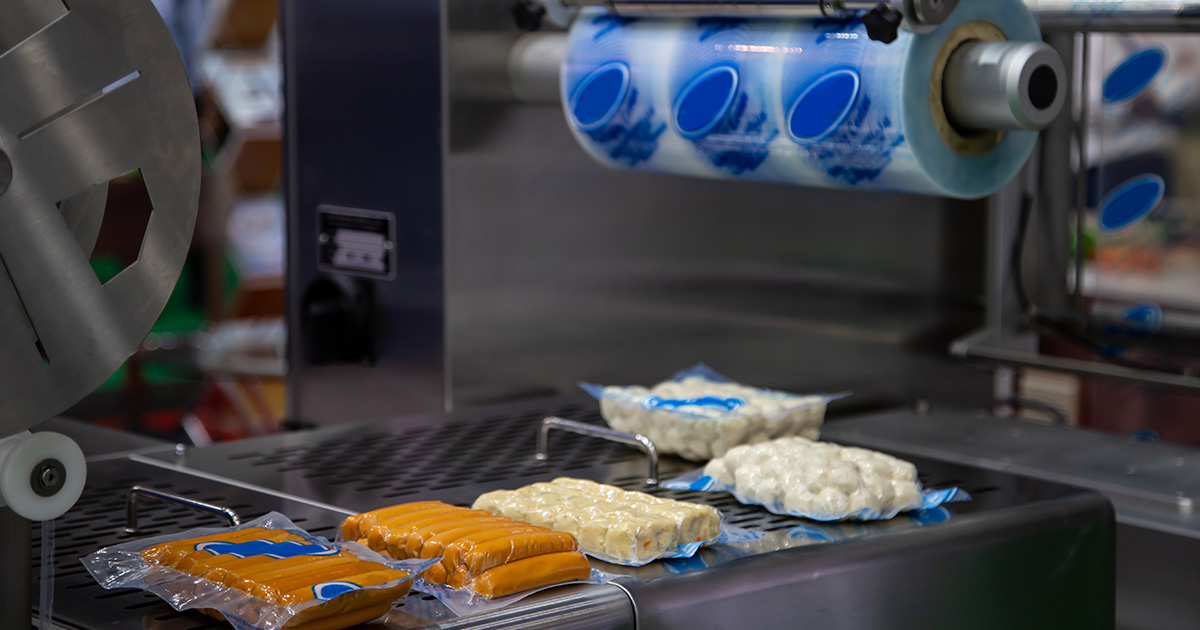
Article 56 Catering service providers shall regularly maintain food processing, storage, display and other facilities and equipment; regularly clean and calibrate insulation facilities and refrigeration and freezing facilities. Catering service providers shall clean and disinfect tableware and drinking utensils as required, and shall not use tableware and drinking utensils that have not been cleaned and disinfected; if catering service providers entrust the cleaning and disinfection of tableware and drinking utensils, they shall entrust a centralized disinfection service unit for tableware and drinking utensils that meets the conditions stipulated in this Law.
Article 57 Canteens of centralized dining units such as schools, childcare institutions, nursing homes, and construction sites shall strictly abide by laws, regulations and food safety standards; when ordering meals from catering units, they shall order from enterprises that have obtained food production and operation licenses, and inspect the ordered food as required. Catering units shall strictly abide by laws, regulations and food safety standards, process meals on the spot, and ensure food safety.
The competent departments of centralized dining units such as schools, childcare institutions, nursing homes, and construction sites shall strengthen food safety education and daily management of centralized dining units, reduce food safety risks, and eliminate food safety hazards in a timely manner.
Article 58 Centralized disinfection service units for tableware and drinking utensils shall have corresponding work places, cleaning and disinfection equipment or facilities, and the water and detergents and disinfectants used shall comply with relevant national food safety standards and other national standards and hygiene regulations.
Centralized disinfection service units for tableware and drinking utensils shall inspect the disinfected tableware and drinking utensils batch by batch, and they may only leave the factory after passing the inspection, and a disinfection certificate shall be attached. The disinfected tableware and drinking utensils shall be marked with the unit name, address, contact information, disinfection date and expiration date on the independent packaging.
Article 59 Food additive producers shall establish a food additive factory inspection record system, check the inspection certificate and safety status of the factory products, truthfully record the name, specification, quantity, production date or production batch number, shelf life, inspection certificate number, sales date, and the name, address, contact information and other relevant contents of the purchaser of the food additives, and keep the relevant vouchers. The retention period of records and vouchers shall comply with the provisions of the second paragraph of Article 50 of this Law.
Article 60 When purchasing food additives, food additive operators shall check the supplier's license and product qualification certificate in accordance with the law, truthfully record the name, specifications, quantity, production date or production batch number, shelf life, purchase date, supplier name, address, contact information and other contents of the food additives, and keep relevant vouchers. The retention period of records and vouchers shall comply with the provisions of the second paragraph of Article 50 of this Law.
Article 61 The operators of centralized trading markets, counter lessors and exhibition organizers shall review the licenses of food operators entering the venue in accordance with the law, clarify their food safety management responsibilities, and regularly inspect their operating environment and conditions. If they find that they have violated the provisions of this Law, they shall promptly stop and immediately report to the food and drug supervision and administration department of the county-level people's government where they are located.
Article 62 The provider of a third-party platform for online food transactions shall register the food operators entering the network with real names and clarify their food safety management responsibilities; if they are required to obtain a license in accordance with the law, they shall also review their licenses.
If the provider of a third-party platform for online food transactions finds that a food operator has violated the provisions of this Law, it shall promptly stop the violation and immediately report it to the food and drug supervision and administration department of the county-level people's government where it is located; if a serious violation is found, the provider of online trading platform services shall immediately stop providing online trading platform services.
Article 63 The state shall establish a food recall system. If a food producer finds that the food it produces does not meet the food safety standards or there is evidence that it may endanger human health, it shall immediately stop production, recall the food that has been put on the market, notify the relevant producers and operators and consumers, and record the recall and notification. If a food operator finds that the food it operates has the circumstances specified in the preceding paragraph, it shall immediately stop operating, notify the relevant producers and operators and consumers, and record the suspension of operation and notification. If a food producer believes that a recall should be made, it shall be recalled immediately. If the food operated by the food operator has the circumstances specified in the preceding paragraph due to the reasons of the food operator, the food operator shall recall it.
Food producers and operators shall take measures such as harmless treatment and destruction of recalled food to prevent it from entering the market again. However, for food recalled because the label, mark or instructions do not meet the food safety standards, the food producer can continue to sell it if remedial measures are taken and food safety can be guaranteed; the remedial measures should be clearly stated to consumers when selling.
Food producers and operators shall report the food recall and handling situation to the food and drug supervision and administration department of the county-level people's government where they are located; if the recalled food needs to be harmlessly treated or destroyed, the time and place shall be reported in advance. If the food and drug supervision and administration department deems it necessary, it may implement on-site supervision. If the food producer and operator fails to recall or stop operation in accordance with the provisions of this article, the food and drug supervision and administration department of the people's government at or above the county level may order it to recall or stop operation.
Article 64 Wholesale markets for edible agricultural products shall be equipped with inspection equipment and inspection personnel or entrust food inspection institutions that meet the provisions of this Law to conduct sampling inspections on edible agricultural products entering the wholesale market for sale; if it is found that they do not meet the food safety standards, the seller shall be required to stop sales immediately and report to the food and drug supervision and administration department.
Article 65 Sellers of edible agricultural products shall establish a system for checking and recording the purchase of edible agricultural products, truthfully record the name, quantity, purchase date, supplier name, address, contact information, etc. of the edible agricultural products, and keep relevant vouchers. The record and voucher retention period shall not be less than six months.
Article 66 Food additives such as preservatives and preservatives and packaging materials used in the packaging, preservation, storage, and transportation of edible agricultural products entering the market for sale shall comply with national food safety standards.

Section 3 Labels, Instructions and Advertisements
Article 67 Pre-packaged foods shall be labeled. The label shall indicate the following items:
Name, specification, net content, production date;
Composition or ingredient list;
Name, address and contact information of the producer:
Shelf life:
Product standard code:
Storage conditions;
Common name of the food additives used in the national standard;
Production license number:
Other items that should be indicated as required by laws, regulations or food safety standards.
For main and auxiliary foods specially for infants and other specific groups, their labels shall also indicate the main nutrients and their content.
If the national food safety standards have other provisions on label marking matters, they shall prevail.
Article 68 When food operators sell bulk foods, they shall indicate the name of the food, production date or production batch number, shelf life, and the name, address and contact information of the producer and operator on the container and outer packaging of the bulk food.
Article 69 When producing and operating genetically modified foods, they shall be clearly marked in accordance with regulations.
Article 70 Food additives shall have labels, instructions and packaging. Labels and instructions shall state the matters specified in Items 1 to 6, 8 and 9 of the first paragraph of Article 67 of this Law, as well as the scope of use, dosage and method of use of food additives, and the words "food additives" shall be stated on the label.
Article 71 Labels and instructions for food and food additives shall not contain false content and shall not involve disease prevention and treatment functions. Producers and operators shall be responsible for the content of the labels and instructions they provide.
Labels and instructions for food and food additives shall be clear and obvious, and matters such as production date and shelf life shall be marked prominently and easily identifiable. Food and food additives that do not conform to the content of their labels and instructions shall not be put on the market.
Article 72 Food operators shall sell food in accordance with the requirements of warning signs, warning instructions or precautions indicated on food labels.
Article 73 The content of food advertisements shall be true and legal, shall not contain false content, and shall not involve disease prevention and treatment functions. Food producers and operators shall be responsible for the authenticity and legality of the content of food advertisements.
The food and drug supervision and administration departments and other relevant departments of the people's governments at or above the county level, as well as food inspection institutions and food industry associations, shall not recommend food to consumers through advertising or other forms. Consumer organizations shall not recommend food to consumers by charging fees or other means of seeking profits.

Section 4 Special Foods
Article 74 The state shall strictly supervise and manage special foods such as Health foods, special medical purpose formula foods and infant formula foods.
Article 75 Health foods that claim health functions shall have scientific basis and shall not cause acute, subacute or chronic harm to the human body. The catalog of health food ingredients and the catalog of health functions that health foods are allowed to claim shall be formulated, adjusted and announced by the food and drug supervision and administration department of the State Council in conjunction with the health administrative department of the State Council and the national traditional Chinese medicine administration department.
The catalog of health food ingredients shall include the name of the ingredient, the dosage and its corresponding efficacy; the ingredients included in the catalog of health food ingredients can only be used in the production of health foods and shall not be used in the production of other foods.
Article 76 Health foods that use ingredients other than those in the catalog of health food ingredients and health foods imported for the first time shall be registered by the food and drug supervision and administration department of the State Council. However, health foods imported for the first time that are supplements of nutrients such as vitamins and minerals shall be reported to the food and drug supervision and administration department of the State Council for filing. Other health foods shall be registered with the food and drug supervision and administration departments of the people's governments of provinces, autonomous regions and municipalities directly under the Central Government. Imported health foods shall be products approved for sale by the competent authorities of the exporting countries (regions).
Article 77 Health foods that are required to be registered according to law shall submit materials and samples such as research and development reports, product formulas, production processes, safety and health function evaluations, labels, instructions, and relevant certification documents when registering. The food and drug supervision and administration department of the State Council shall organize technical review and approve registration for those that meet the requirements of safety and function claims; for those that do not meet the requirements, they shall not be registered and the reasons shall be stated in writing. If a decision is made to approve the registration of health foods that use raw materials other than those in the health food raw material catalog, the raw materials shall be included in the health food raw material catalog in a timely manner.
Health foods that are required to be registered according to law shall submit product formulas, production processes, labels, instructions, and materials indicating product safety and health functions when registering.
Article 78 The labels and instructions of health foods shall not involve disease prevention and treatment functions, and the content shall be true and consistent with the content of registration or filing, and shall state the appropriate population, unsuitable population, effective ingredients or iconic ingredients and their content, etc., and declare that "this product cannot replace drugs". The functions and ingredients of health food shall be consistent with the labels and instructions.
Article 79 In addition to complying with the provisions of the first paragraph of Article 73 of this Law, health food advertisements shall also state that "this product cannot replace medicine"; its content shall be reviewed and approved by the food and drug supervision and administration department of the people's government of the province, autonomous region or municipality directly under the Central Government where the manufacturer is located, and obtain the health food advertisement approval document. The food and drug supervision and administration departments of the people's governments of provinces, autonomous regions and municipalities directly under the Central Government shall publish and promptly update the approved health food advertisement catalog and approved advertisement content.
Article 80 Special medical purpose formula foods shall be registered by the food and drug supervision and administration department of the State Council. When registering, product formulas, labels, instructions and materials indicating product safety, nutritional adequacy and clinical effects of special medical purposes shall be submitted. Special medical purpose formula food advertisements shall be subject to the provisions of the Advertising Law of the People's Republic of China and other laws and administrative regulations on drug advertising management.
Article 81 Infant formula food Manufacturers shall implement full-process quality control from the entry of raw materials to the exit of finished products, and implement batch-by-batch inspection of infant formula foods leaving the factory to ensure food safety.
Raw milk, auxiliary materials and other food raw materials, food additives, etc. used in the production of infant formula food shall comply with the provisions of laws, administrative regulations and national food safety standards to ensure the nutrients required for the growth and development of infants and young children.
Infant formula food manufacturers shall file matters such as food raw materials, food additives, product formulas and labels with the food and drug supervision and administration departments of the people's governments of provinces, autonomous regions and municipalities directly under the Central Government.
The product formula of infant formula milk powder shall be registered with the food and drug supervision and administration department of the State Council. When registering, a formula research and development report and other materials that demonstrate the scientificity and safety of the formula shall be submitted.
Infant formula milk powder shall not be produced by repackaging, and the same enterprise shall not produce different brands of infant formula milk powder with the same formula.
Article 82 The registrant or filer of health food, special medical purpose formula food and infant formula milk powder shall be responsible for the authenticity of the materials submitted. The food and drug supervision and administration departments of the people's governments at or above the provincial level shall promptly publish the catalog of registered or registered health food, special medical purpose formula food and infant formula milk powder and keep confidential the business secrets of enterprises learned during registration or filing.
Health food, special medical purpose formula food, infant formula milk powder production enterprises shall organize production in accordance with the registered or filed product formula, production process and other technical requirements.
Article 83 Enterprises producing health food, special medical purpose formula food, infant formula food and other main and auxiliary foods for specific groups of people shall establish a production quality management system suitable for the food they produce in accordance with the requirements of good production practices, conduct self-inspections on the operation of the system regularly to ensure its effective operation, and submit self-inspection reports to the food and drug supervision and administration department of the county-level people's government where they are located.
 +86 18186671616
+86 18186671616 Jason@cleanroomequips.com
Jason@cleanroomequips.com
 MENU
MENU







